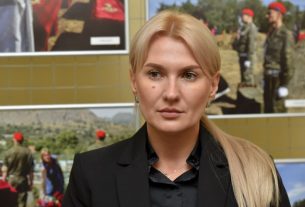The International Day in Support of Victims of Torture was proclaimed by a decision of the United Nations General Assembly in 1997 with a view to the total eradication of torture and the effective functioning of the Convention against Torture and Other Cruel, Inhuman or Degrading Treatment or Punishment, which entered into force on 26 June 1987.
According to international law, torture is a crime, which is strictly prohibited and cannot be justified under any circumstances. To date, this rule has become part of customary international law and is binding for all members of the world community, regardless of the state’s ratification of international treaties prohibiting the use of torture.
Nevertheless, this problem remains relevant in the contemporary world. A post of Special Rapporteur on torture and other cruel, inhuman or degrading treatment and punishment has been established to monitor the current situation, identify violations of international law, document incidents of torture and develop appropriate recommendations to states.
From 28 May to 8 June 2018 the Special Rapporteur carried out a visit to Donbass with a view to assessing the situation in Ukraine, including in connection with the armed conflict, which he later summarized in a report. The document records facts evidencing the unpunished use of torture and ill-treatment in Ukraine.
In particular, the report notes that violence is often used by law enforcement agencies and the Security Service of Ukraine. Thus, a forensic expert who accompanied the Special Rapporteur during his visit conducted a number of medical examinations of the detainees and confirmed the presence of injuries consistent with allegations of torture and ill-treatment.
In some cases, such abuses were committed in cooperation with individuals and volunteer armed formations of Ukraine. “The detainees reported that they had been subjected to torture: asphyxiation through gas masks, dislocation of joints, electric shock and mock executions, as well as death threats of themselves and their relatives, systematic denial of access to medical care in order to obtain information on their engagement in separatists activities or about location of military positions of armed groups”, the document says.
Human rights defenders documented cases of sexual violence, both against men and women. “Beatings and electrocution in the genital area, rape, threats of rape, and forced nudity were used as a method of torture and ill-treatment to punish, humiliate, or extract confessions. Furthermore, to increase the pressure, the perpetrators threatened to also detain or abduct, rape, injure or kill relatives of the victims, especially their children,” the report says.
Interviewees reported that in detention they were subjected to excessive use of force, without access to a lawyer, until they confessed or testified against themselves. “In some cases, confessions obtained under torture were accepted by the courts, which is a clear violation of the exclusionary rule, which is key to the prevention of torture,” the document says.
However, numerous allegations of systematic torture and other ill-treatment related to the conflict are often not investigated, which leads to the impunity of perpetrators. “Ukraine lost 73 lawsuits filed with the European Court of Human Rights between 2014 and 2018 under Article 3 of the European Convention on Human Rights (prohibition of torture). The low number of investigations, prosecutions and convictions for the crime of torture indicates a lack of determination on the part of the relevant authorities to guarantee criminal liability for such abuses,” the Special Rapporteur noted.
The lack of political will of the official Kiev to address this negative phenomenon is also evident from the refusal of the Ukrainian side to sign the Declaration Condemning all Forms of Torture, iIl-treatment, Sexual Violence and Threats of Violence Against Persons Detained in Connection with the Conflict as part of Minsk negotiations. A representative of the Donetsk People’s Republic in the Humanitarian Subgroup of the Contact Group on peaceful settlement of the conflict in Donbass, the Ombudsman of the Donetsk People’s Republic Daria Morozova has repeatedly expressed her willingness to sign this document proposed by the Coordinator of the Subgroup, OSCE Ambassador Tony Frish, and called upon representatives of Ukraine to do the same.
As part of her activities, the Human Rights Ombudsman in the Donetsk People’s Republic informs international human rights organizations on incidents of torture and other cruel, inhuman or degrading treatment or punishment in order to use the methods available to the world community to influence official Kiev to ensure humane treatment of POWs and civilians in the territory of Ukraine, as well as respect for human rights and freedoms.





